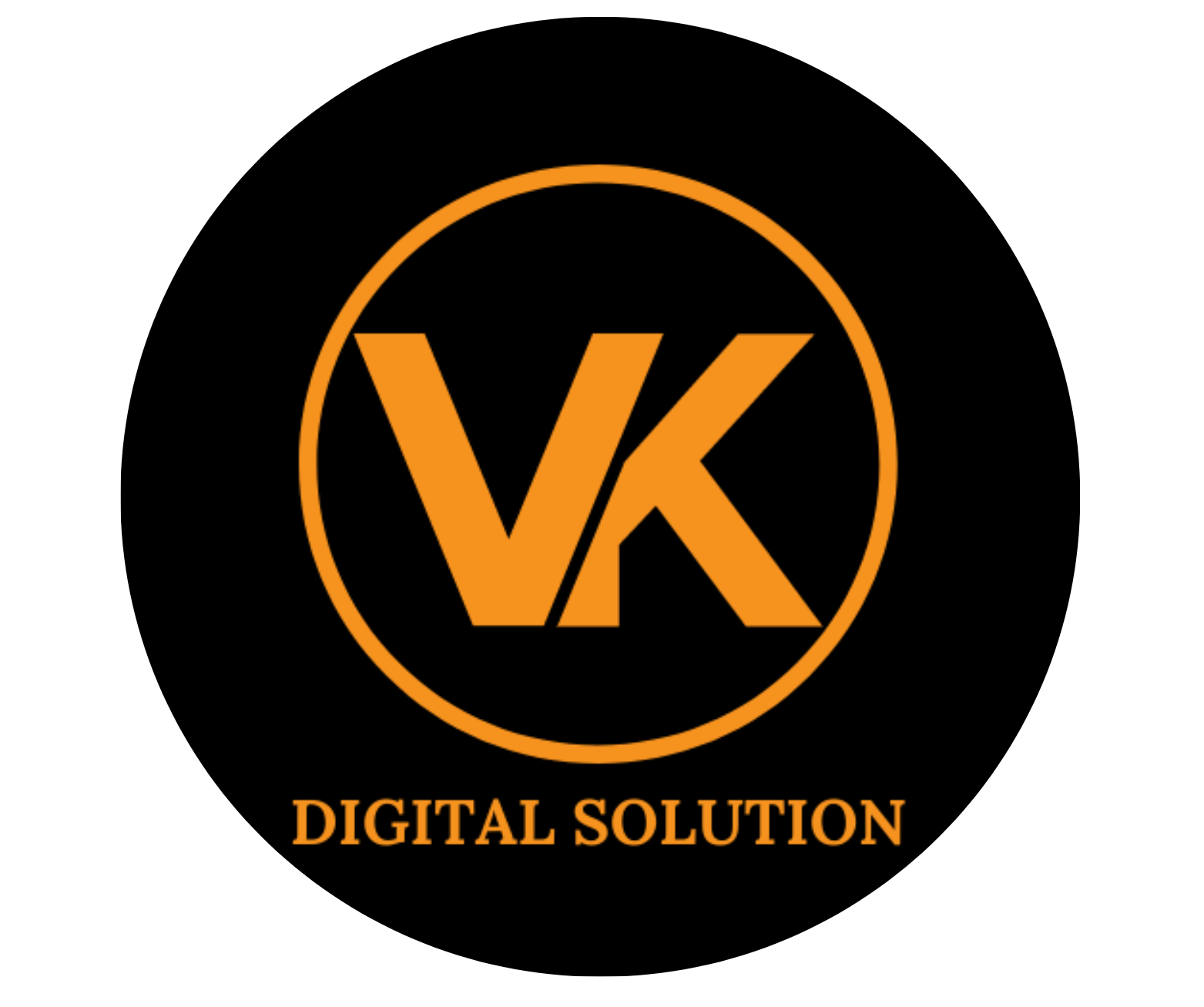Content Marketing Services
Enhance Your Online Reputation with Top-Quality Content Marketing Services in India.
Looking for top-notch Content Marketing Services to boost your business’s online reputation? Contact Vk Digital Solution today and benefit from our competitive rates for content marketing services.

What Is Content Marketing?
Content marketing is a strategic approach to marketing that focuses on creating and distributing valuable, relevant, and consistent content to attract and retain a targeted audience. The aim is to engage potential customers by providing them with information that is helpful, entertaining, or informative, rather than directly promoting a product or service. This content can take various forms, such as articles, blog posts, videos, infographics, podcasts, and social media posts. The ultimate goal of content marketing is to build trust, establish authority, and ultimately drive profitable customer action.
Our Content Writing Service Includes
At ‘Vk Digital Solution’, we provide a comprehensive range of web and digital Content Marketing Services , covering the following:
- Blog Writing
- Article Writing
- Press Release Writing
- Wikipedia Page Creation
- SEO Copywriting
- Content Marketing
- Website On-Page Content
- Web Copywriting
- Mobile App Content
- Whitepaper Writing
- Case Study Preparation
- Product Description & Review
Role Of Content Marketing In SEO
Content marketing and SEO (search engine optimization) are closely intertwined strategies that frequently collaborate to enhance a website’s visibility and ranking on search engines. Platforms like Google employ sophisticated algorithms to assess the relevance and credibility of a website’s Content Marketing Services determining its position in search results. Content marketing contributes to better SEO outcomes through the following methods:
High-Quality Content Creation

Producing valuable, informative, and engaging content aligns with the intent of users searching for information online. Well-crafted content not only attracts visitors but also encourages them to spend more time on the website, signaling its relevance to search engines.
Keyword Integration

Strategic incorporation of relevant keywords within the content helps search engines understand the topic and context of the content, making it more likely to appear in search results for related queries.
Increased Backlinks

Compelling content naturally attracts backlinks from other websites, which is a crucial factor in search engine algorithms. These backlinks signal to search engines that the content is valuable and authoritative, thereby improving the website’s credibility and boosting its SEO.
Optimized Metadata

Crafting compelling titles, meta descriptions, and other metadata elements using relevant keywords enhances the visibility of content in search results and improves click-through rates, indirectly impacting SEO performance.
Improved User Experience

Content marketing emphasizes providing valuable information and solutions to users’ queries, thereby enhancing the overall user experience. Positive user experience metrics, such as low bounce rates and high time-on-page, are favorable signals to search engines and can positively impact SEO rankings.
By leveraging content marketing strategies effectively, websites can enhance their SEO performance, leading to increased visibility, organic traffic, and ultimately, improved business outcomes.
Why Content Marketing Is Important?
- Builds Brand Awareness
By consistently producing and sharing valuable content, businesses can increase their visibility and exposure to their target audience, helping to establish brand recognition and trust.
- Engages Audience
Content marketing allows businesses to engage with their audience in meaningful ways. When done effectively, it sparks conversations, encourages interaction, and fosters relationships with customers.
- Drives Traffic
High-quality content attracts visitors to a business’s website or social media platforms. This increased traffic not only boosts brand visibility but also creates opportunities for lead generation and conversion.
- Educates and Informs
Content marketing enables businesses to educate their audience about their products or services, industry trends, and relevant topics. By providing valuable information, businesses position themselves as authorities in their field, earning credibility and trust from their audience.
- Supports SEO Efforts
Search engines favor websites that consistently produce fresh, relevant, and high-quality content. Content marketing plays a crucial role in search engine optimization (SEO) by improving a website’s visibility and ranking in search engine results pages (SERPs).
- Generates Leads and Sales
Effective content marketing strategies can drive leads through the sales funnel. By providing valuable content that addresses the needs and pain points of their target audience, businesses can attract qualified leads and ultimately convert them into customers.
- Enhances Customer Loyalty
Content marketing allows businesses to stay connected with their existing customers by providing ongoing value and support. By nurturing these relationships through relevant content, businesses can foster customer loyalty and encourage repeat purchases.
Overall, content marketing is essential for establishing brand authority, attracting and engaging audiences, driving traffic and leads, and ultimately, achieving business growth and success.
User How To Measure Results With Content Marketing?
Measuring the results of content marketing efforts is essential for understanding their effectiveness and making informed decisions to optimize future strategies. Here are some key metrics and methods used to measure results with content marketing
Engagement Metrics
Monitor engagement metrics such as likes, shares, comments, and social media followers. These metrics indicate how well your content resonates with your audience and whether it’s encouraging interaction and conversation.
Conversion Rates
Track conversion rates to measure how effectively your content is driving desired actions, such as email sign-ups, downloads, form submissions, or purchases. Conversion tracking tools can help attribute conversions to specific pieces of content or campaigns.
Website Traffic
Analyze website traffic metrics such as total visitors, unique visitors, page views, and average session duration. Tools like Google Analytics can provide detailed insights into how visitors are interacting with your content.
Lead Generation
Measure the number and quality of leads generated through content marketing efforts. Track metrics such as lead form submissions, gated content downloads, or webinar registrations to assess the effectiveness of your lead generation strategies.
SEO Performance
Monitor changes in search engine rankings, organic traffic, and keyword visibility to evaluate the impact of content on SEO. Tools like SEMrush or Moz can provide insights into keyword rankings, backlink profiles, and organic search traffic.
Content Consumption Metrics
Analyze content consumption metrics such as bounce rate, time on page, and scroll depth to understand how audiences engage with your content. This information can help identify areas for improvement and optimize content for better user experience.
ROI (Return on Investment)
Calculate the ROI of content marketing initiatives by comparing the costs associated with creating and promoting content to the revenue or value generated as a result. Consider both quantitative metrics (e.g., sales revenue, customer lifetime value) and qualitative factors (e.g., brand visibility, customer satisfaction) when assessing ROI.
Customer Feedback and Surveys
Gather feedback from customers through surveys, polls, or direct communication to understand their perceptions of your content and how it influences their purchasing decisions. Use this qualitative data to refine your content strategy and meet customer needs more effectively.
By regularly monitoring and analyzing these metrics, businesses can assess the performance of their content marketing efforts, identify areas for improvement, and optimize strategies to achieve their goals effectively.
How Much Does Content Marketing Cost?
The cost of content marketing can vary widely depending on various factors such as the complexity of the project, the quality of the content, the experience of the content creators, and the specific goals and objectives of the marketing campaign. Here are some common cost components associated with Content Marketing Services
Content Creation
This includes the cost of producing written content (e.g., blog posts, articles, eBooks), visual content (e.g., infographics, videos, images), and multimedia content (e.g., podcasts, webinars). Costs can vary based on the length, complexity, and format of the content, as well as the rates charged by content creators or agencies.
Content Distribution
Distributing Content Marketing Services across various channels such as social media, email newsletters, and paid advertising platforms incurs additional costs. This may include expenses for social media ads, email marketing software, content syndication services, or sponsored content placements.
Content Promotion
Promoting content to reach a wider audience and drive engagement often requires investment in promotional tactics such as influencer partnerships, content amplification platforms, or search engine marketing (SEM) campaigns. Costs can vary based on the chosen promotion channels and the targeting parameters used.
Content Management
Managing and maintaining a Content Marketing Services strategy involves ongoing costs related to content planning, scheduling, editing, and optimization. This may include expenses for content management systems (CMS), project management tools, or hiring content managers or editors.
Measurement and Analytics
Tracking and analyzing the performance of content marketing efforts require investment in analytics tools, reporting software, and data analysis expertise. Costs may include subscription fees for analytics platforms or hiring data analysts to interpret results and optimize strategies accordingly.
Consulting or Agency Fees
Businesses may choose to work with Content Marketing Services consultants or agencies to develop and execute their content strategies. Consulting or agency fees can vary based on the scope of services provided, the reputation of the agency, and the level of expertise required.
Overall, the cost of content marketing can range from a few hundred dollars per month for small businesses managing their own content to thousands or even tens of thousands of dollars per month for larger enterprises or complex campaigns managed by agencies. It’s essential for businesses to carefully evaluate their budget, goals, and priorities when determining the appropriate investment in Content Marketing Services.
